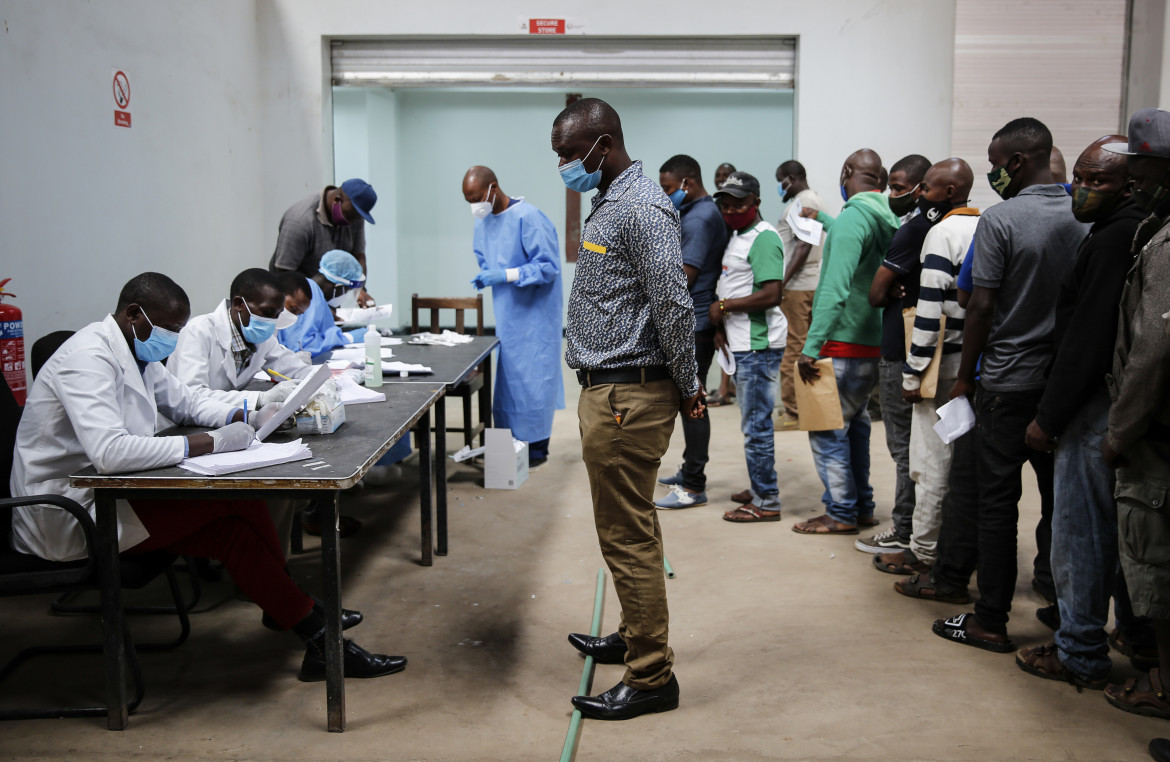Interview
Rich countries are rejecting vaccine distribution reforms that would save millions of lives
Negotiations to lift patents and increase vaccine production in the global South have failed. 'The fact is that economic interests are predominant.'

The meeting at the WTO to discuss the proposal by South Africa and India to temporarily suspend intellectual property rights on drugs has ended with no official agreement reached. The talks that began Wednesday are purely informal.
The proposal is also supported, in addition to the two lead countries, by Kenya, Mozambique, Pakistan, Mongolia, Venezuela, Bolivia, Egypt and Swaziland. Italy, the United Kingdom, the United States, Australia, Japan and Switzerland are opposed.
The issue of intellectual property on drugs, tests and vaccines is of fundamental importance in the fight against Covid: with a clear legal path, the poorest countries would have the possibility of producing what they need independently, a maneuver that could potentially save millions of human lives. The differences between one part of the world and the other are already quite evident: if 40 million doses of vaccines have been distributed in the 49 richest countries, in low-income countries the distribution is stuck at 25 doses.
Covax, the WHO structure that deals with the equitable distribution of drugs in the world, is struggling. Money is scarce and the goal of two billion vaccinations by the end of the year already seems unattainable. Brussels, for its part, through the Commissioner for Health Stella Kyriakides, is studying a way to pass the surplus of vaccines ordered (2.3 billion doses) over to the countries of the Balkans and Africa. This plan, however, is still an abstraction and there is not even a shadow of concrete projects yet.
“The pandemic has amplified and made even more evident the inequalities and imbalances between the north and the south of the world,” says Silvia Mancini, public health expert at Doctors Without Borders.
The hopes that something concrete will come out of the WTO council soon are very low.
I would say that they are not really there. It is an exchange of views between the various countries, but there will be no concrete steps forward. We are now going from postponement to postponement on this issue since October. The proposal put forward by South Africa and India is concrete and moves in the direction indicated also by the WHO, that is, if opposition to what we could call “vaccine sovereignty.”
European Commission President Ursula von der Leyen has written to governments to say that she will do everything to increase production of the drugs. Can this intervention also unblock the situation as regards the proposal of India and South Africa?
The approach in Europe is not to suspend intellectual property, but only to increase production. It is a different thing, then. It is an immediate question of finding agreements with multinationals. The fact is that economic interests are predominant, although here too we suffered a lot at the beginning of the pandemic. I am thinking of the fact, for example, that masks could not be found, some of which were subject to a patent. What we are doing as Doctors Without Borders is a call for global solidarity.
Universal access to medicines would also affect the duration of the pandemic, in the sense that the more people are treated, the sooner this situation can be overcome.
Yes, that’s clear. The universal availability of the vaccine is not only a matter of fairness, but also of public health. The distribution forecasts made by Covax released on Wednesday basically say that most of the production and distribution will take place in the second quarter. And if Covax reaches 3.3% coverage by the end of June, rich countries will be between 50% and 60%. Any form of supplemental supply from Covax will be key to strengthening and increasing coverage.
In your opinion, will India and South Africa succeed in the end?
India is a bit like the pharmacy of the southern hemisphere, and has a large production capacity, so much so that it is beginning to distribute medicines to neighboring countries. It certainly has a relevant role here. Now we need to understand how the geopolitics of vaccines will stand. Rich countries are making deals with each other and with multinationals, while others make do.
Originally published at https://ilmanifesto.it/via-i-brevetti-sui-farmaci-non-e-solo-questione-di-equita-ma-di-salute-pubblica/ on 2021-04-02
